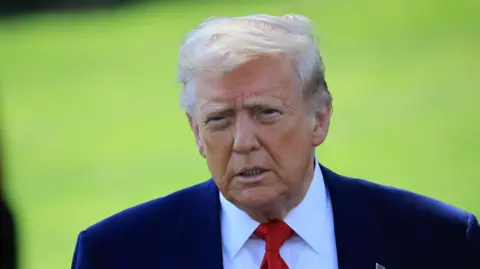BBC News
 Getty Images
Getty ImagesUS President Donald Trump has issued an executive order calling for all federal funding to the Public Broadcasting Service (PBS) and National Public Radio (NPR) to be blocked.
On Thursday evening, Trump alleged that both organisations have engaged with “biased and partisan news coverage”.
The order instructs the board of the Corporation of Public Broadcasting, who distributes funding to PBS and NPR stations, to “cease direct funding” to the “maximum extent allowed by law”.
It adds that the board should “decline to provide future funding” to the news organisations. The BBC has contacted NPR and PBS for comment.
“Which viewpoints NPR and PBS promote does not matter,” the order says.
“What does matter is that neither entity presents a fair, accurate, or unbiased portrayal of current events to taxpaying citizens.”
The White House has said that funding of news media is “not only outdated and unnecessary but corrosive to the appearance of journalistic independence” and that the media landscape has become more “diverse”.
However, the CPB budget has already been approved by Congress through 2027.
‘Devastating impact’
More than 40 million Americans listen to NPR public radio each week, and 36 million watch a local television station from the PBS network each month, according to their estimates.
NPR director Katherine Maher estimated in March that the radio station would receive about $120m (£90m) from the CPB in 2025, “less than 5% of its budget.”
Both organisations have previously said that Trump’s effort to cut funding could have a “devastating impact” on those who rely on them for credible news, including during emergency situations.
Media rights group RSF warned on Friday about “an alarming deterioration in press freedom” in the United States under Trump and “unprecedented” difficulties for independent journalists around the world.

